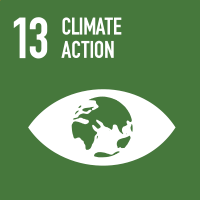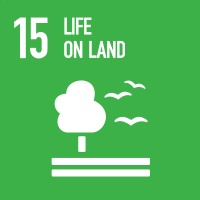Studying at the University of Verona
Here you can find information on the organisational aspects of the Programme, lecture timetables, learning activities and useful contact details for your time at the University, from enrolment to graduation.
Study Plan
This information is intended exclusively for students already enrolled in this course.If you are a new student interested in enrolling, you can find information about the course of study on the course page:
Laurea magistrale in Biotecnologie per le biorisorse e lo sviluppo ecosostenibile - Enrollment from 2025/2026The Study Plan includes all modules, teaching and learning activities that each student will need to undertake during their time at the University.
Please select your Study Plan based on your enrollment year.
1° Year
| Modules | Credits | TAF | SSD |
|---|
1 module among the following1 module among the following1 module between the following1 module among the following1 module between the following2° Year activated in the A.Y. 2024/2025
| Modules | Credits | TAF | SSD |
|---|
1 module between the following1 module between the following1 module among the following| Modules | Credits | TAF | SSD |
|---|
1 module among the following1 module among the following1 module between the following1 module among the following1 module between the following| Modules | Credits | TAF | SSD |
|---|
1 module between the following1 module between the following1 module among the following| Modules | Credits | TAF | SSD |
|---|
1 module among the followingLegend | Type of training activity (TTA)
TAF (Type of Educational Activity) All courses and activities are classified into different types of educational activities, indicated by a letter.
Industrial microbial biotechnology (2023/2024)
Teaching code
4S008290
Teacher
Coordinator
Credits
6
Language
Italian
Scientific Disciplinary Sector (SSD)
BIO/19 - MICROBIOLOGY
Period
Semester 1 dal Oct 2, 2023 al Jan 26, 2024.
Courses Single
Authorized with reserve
Learning objectives
The course aims to provife the theoretical knowledge and the up to date view of the technological applications regarding microbial transformation processes in industrial and environmental fields, focused on the obtainment of high-value products and processes based on either the use of renewable substrates and eco-friendly approaches or bioremediation protocols of polluted matrices. In particular, attention will be given to metabolic and molecular aspects related to the exploitation of microorganisms for i) the biotransformation of main polymeric components of plant biomasses: ii) the industrial production of primary and secondary metabolites; iii) the obtainment of bio-catalysts of microbial origin for chemo-enzymatic transformations; iv) biodegradation and biotransformation of either inorganic or organic polluted substances; v) the microbial biosynthesis of nanostructured materials of metals and metalloids of nano-biotechnological interest; vi) production of energy, hydrogen and other products by means of the Bioelectrochemical Systems (BES) such as the Microbial Fuel cells (MFCs) or the Microbial Electrolysis Cells (MECs).
Prerequisites and basic notions
General Microbiology
Program
- Introduction
Description of the course organization and details about the topics of the lectures and assessment methods. The crucial role of microbial biotechnology in the bioeconomy
- Microbial transformation of plant biomasses
Microbial biotechnologies for the transformation of the main polymeric components of plant biomasses
- Compounds production of microbial origin
Microbial biotechnologies for the production of aminoacids, organic acids, antibiotics. Microorganisms applied to agriculture.
- Microbial enzymes for industrail applications
- Microbial degradation of xenobiotic compounds of environmental interest
Microbial degradation of linear and branched hydrocarbons. Microbial degradation of aromatic compounds. Microbial transformation of haloaromatic compounds through dehalogenation. Genetics of the catabolic pathways for the organic contaminants degradation.
- Microbial transformation of inorganic compounds of environmental interest (metals and metalloids)
Microbial transformation of metals and metalloids. Reduction/oxidation mechanisms of inorganic compounds and the importance for the bioremediation. Microbial sinthesys of metal nanostructured compounds for nanobiotechnological applications.
- Microbial biotechnologies for the production of electricity and biogas
Production of electricity, hydrogen and other products of commercial value though bioelectrochemical systems (BES) such as Microbial Fuel cells (MFCs) or Microbial Electrolysis Cells (MECs). Basic informations regarding bacterial biogas production.
Bibliography
Didactic methods
Lectures in classroom, Discussion on research papers in classroom
Learning assessment procedures
The exam is aimed at verifying the acquisition by the student of the Knowledge and abilities defined in the 'learning outcomes' of the course. The exam is written, with open and closed questions. The duration is of 2 hours. The written exam can be integrated, upon student’s request, with an oral exam.
Evaluation criteria
The evaluation criteria concern the acquisition of knowledge related to the contents of the teaching and of an appropriate scientific language
Criteria for the composition of the final grade
The exam does not include intermediate tests. The final grade is given by the sum of the scores obtained for each individual question of the exam.
Exam language
Italiano




